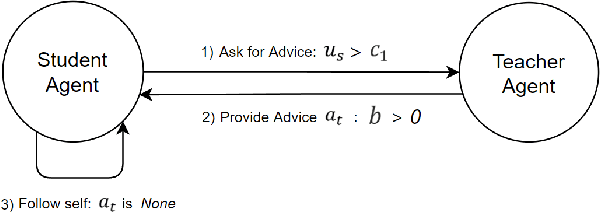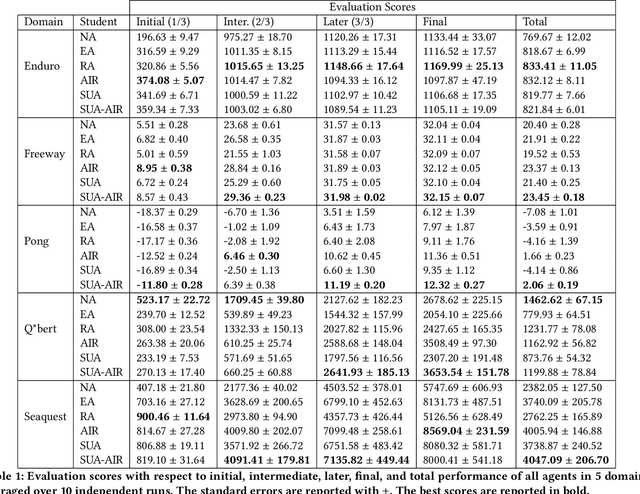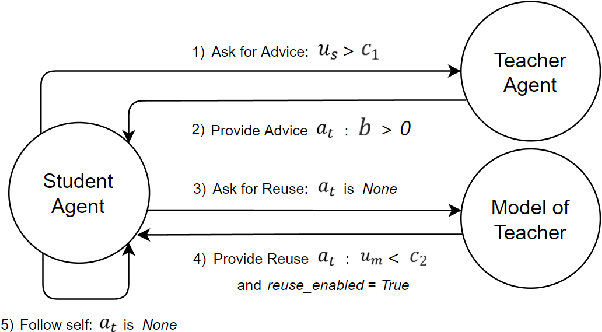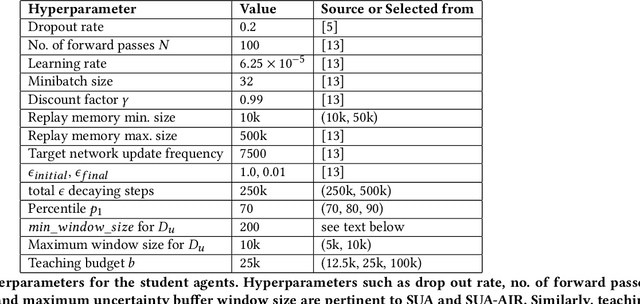Methodical Advice Collection and Reuse in Deep Reinforcement Learning
Paper and Code
Apr 14, 2022



Reinforcement learning (RL) has shown great success in solving many challenging tasks via use of deep neural networks. Although using deep learning for RL brings immense representational power, it also causes a well-known sample-inefficiency problem. This means that the algorithms are data-hungry and require millions of training samples to converge to an adequate policy. One way to combat this issue is to use action advising in a teacher-student framework, where a knowledgeable teacher provides action advice to help the student. This work considers how to better leverage uncertainties about when a student should ask for advice and if the student can model the teacher to ask for less advice. The student could decide to ask for advice when it is uncertain or when both it and its model of the teacher are uncertain. In addition to this investigation, this paper introduces a new method to compute uncertainty for a deep RL agent using a secondary neural network. Our empirical results show that using dual uncertainties to drive advice collection and reuse may improve learning performance across several Atari games.
 Add to Chrome
Add to Chrome Add to Firefox
Add to Firefox Add to Edge
Add to Edge